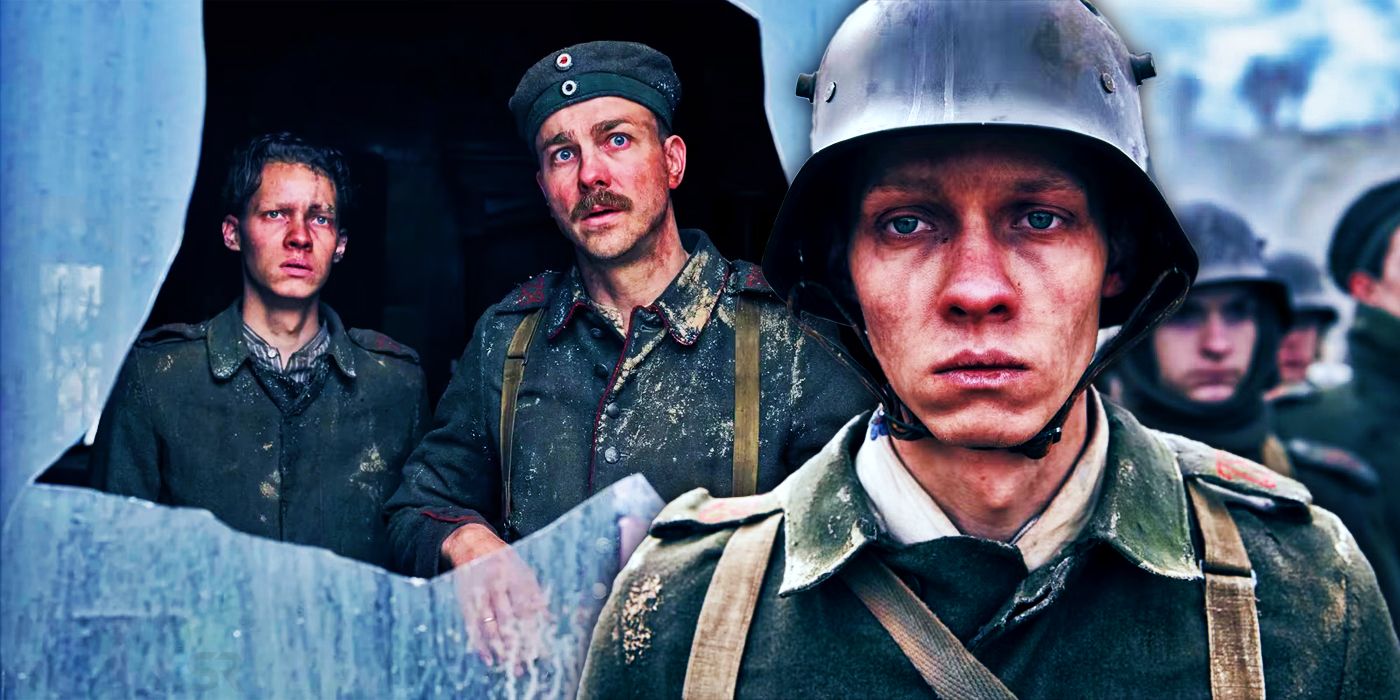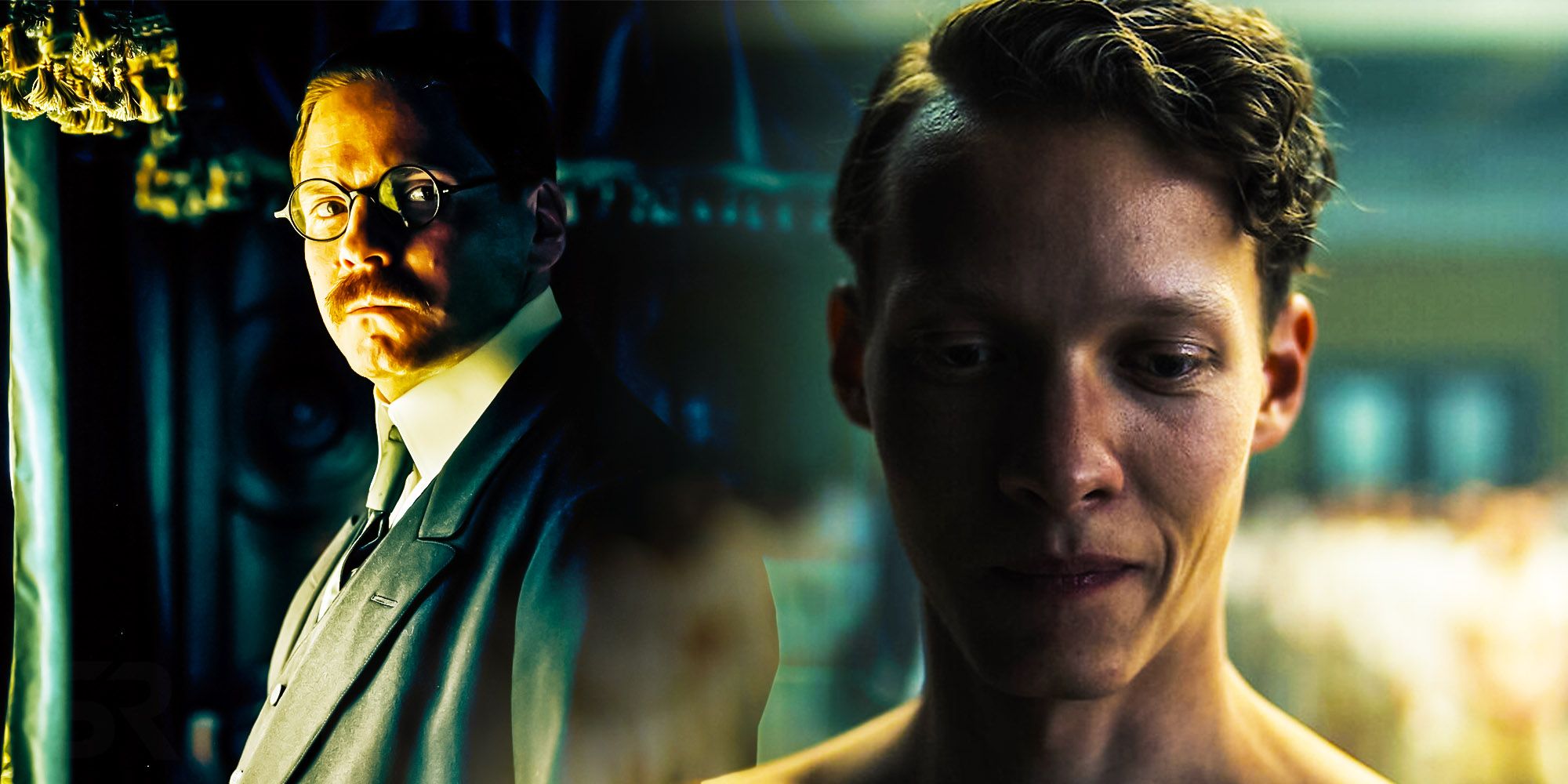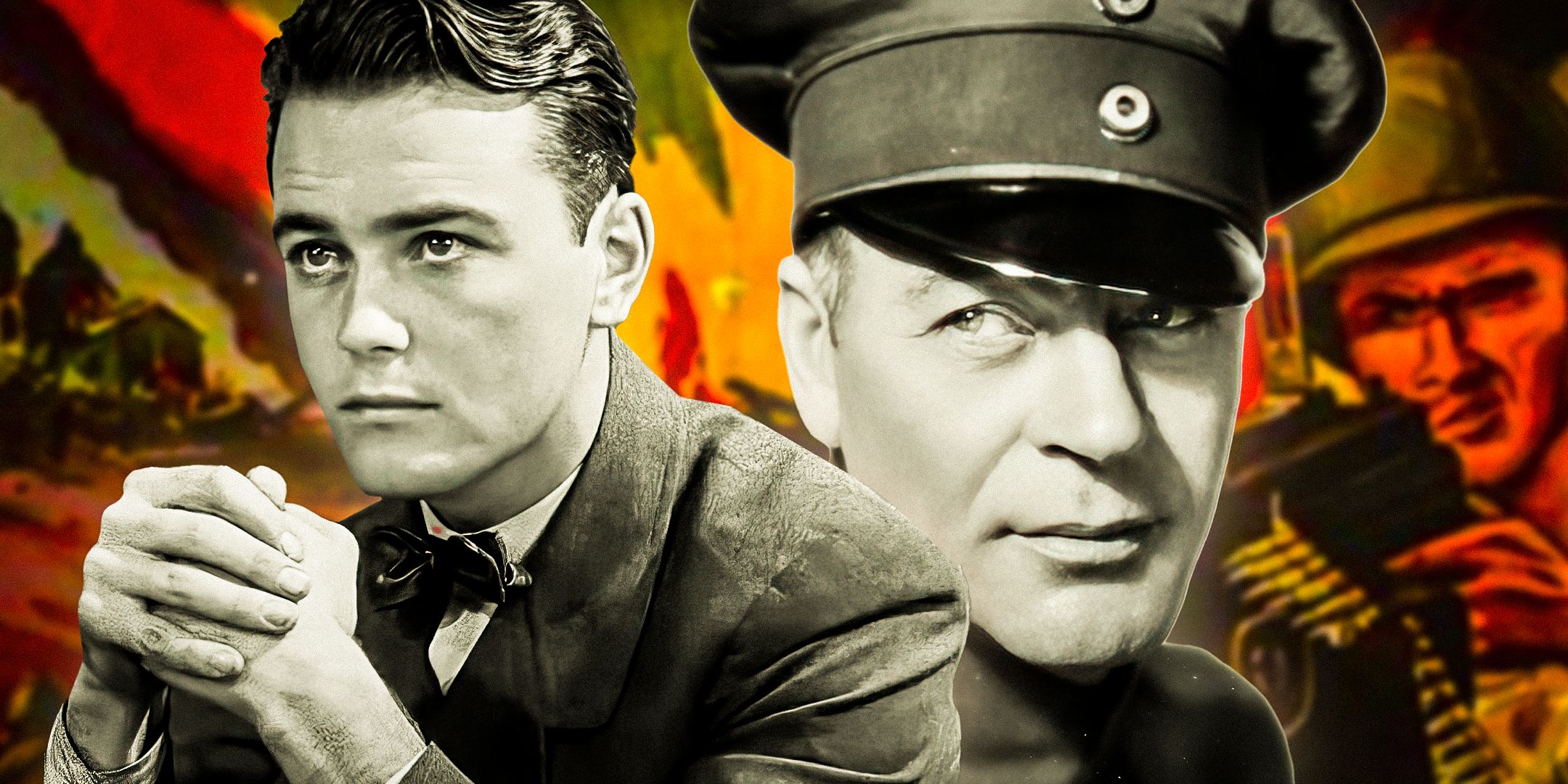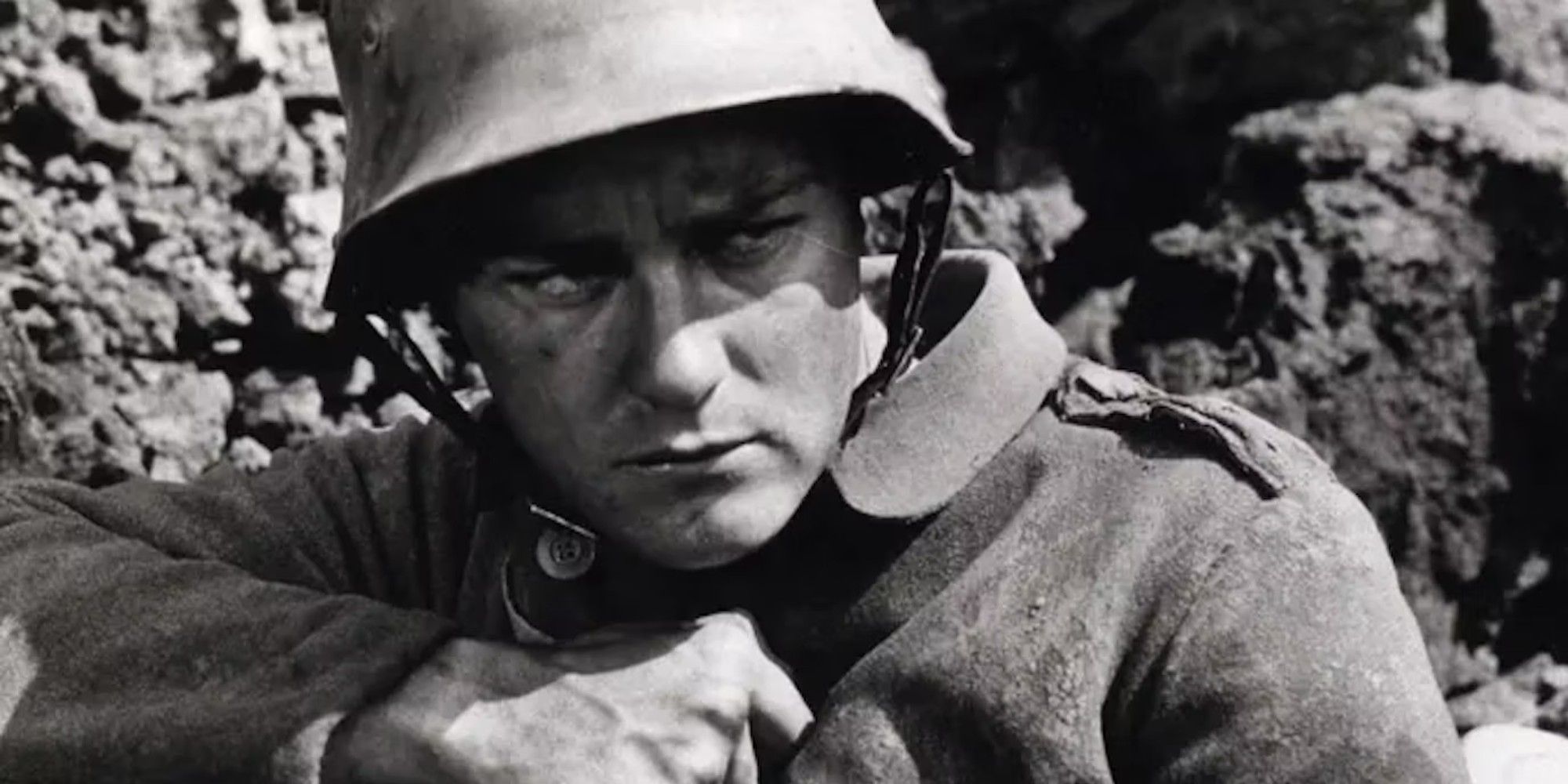Summary
- All Quiet On The Western Front is a powerful anti-war film that sheds light on the brutal realities of World War I.
- The 1930 adaptation received heavy criticism for its anti-war message but won 2 Academy Awards, including Best Picture.
- The 1979 and 2022 remakes were both critically praised but did not reach the same level of success as the original.
The war drama All Quiet On The Western Front has seen three movie adaptations, with the first released 94 years ago. Based on the 1929 book by Erich Maria Remarque, the story follows a group of young German schoolboys who are encouraged to enlist in the war by their teacher. But once they enter the battleground, they are introduced to the harsh realities of war and must muster up all of their strength if they wish to have any hope of survival; All Quiet On The Western Front was one of the first anti-war films released in history.
The book and 1930 film received heavy criticism due to their dark depictions of war; the movie was also banned in France until 1963 for its anti-war messages directed towards audiences. Despite the controversies, All Quiet On The Western Front was highly praised, winning 2 Academy Awards, including Best Picture, and is often regarded as one of the greatest war films ever made. Since its release in 1930, the movie has been remade twice, with both remakes being critically and commercially successful, but not quite on the same level as the original.

Why All Quiet On The Western Front Book & Original Movie Were Banned
Despite garnering critical acclaim, both the original novel and 1930 film version of All Quiet on the Western Front were banned in several countries.
All Quiet On The Western Front's Two Remakes Explained
The Two Remakes Were Released in 1979 and 2022
The first remake of All Quiet on the Western Front was released in 1979 as a television movie. Directed by Delbert Mann, the 1979 movie starred Richard Thomas and Ernest Borgnine as a joint production between the United States and the United Kingdom; it was later edited and received a worldwide theatrical release. The 1979 movie was well-received by critics and audiences, winning the Golden Globe for Best Motion Picture Made For Television and the Emmy Award for Outstanding Filming Editing; the cast was also highly praised with Ernest Borgnine and Patricia Neal receiving Emmy nominations for their performances.
The second remake was released theatrically in 2022, directed by Edward Berger; unlike the previous versions filmed in English, the 2022 remake was filmed in German starring Felix Kammerer and Albrecht Schuch. The 2022 movie premiered at the Toronto International Film Festival and was later released on Netflix; it received slight criticism for its deviations from the original novel and the changes made to the ending. Despite the criticism, 2022's All Quiet on the Western Front was still received well worldwide and won 4 Academy Awards, including Best International Feature Film, and 7 British Academy Film Awards, including Best Film.

All Quiet On The Western Front Book vs. Movie: Biggest Differences
Netflix’s All Quiet On The Western Front generally stays true to its book source material, but the movie still makes some notable changes.
Why The Original All Quiet On The Western Front Is Still The Best
The Original Movie Contained A Powerful Anti-War Message To Viewers
The 1930 adaptation of All Quiet on the Western Front offered a bleak and realistic view into the dark realities of war; it was released only 12 years after the end of World War I and was one of the first movies to offer such a gruesome depiction of life in the trenches.
All three movie versions of All Quiet on the Western Front were released to high critical reviews. Both remakes were considered excellent adaptations of Remarque's novel, with each receiving individual acclaim; the 1979 movie received praise for its locations, editing, and performances, while the 2022 version won awards for its cinematography and musical score (via MovieWeb). However, while both remakes offer stunning takes on the novel, they are outranked by the 1930 movie for several reasons.
The 1930 adaptation of All Quiet on the Western Front offered a bleak and realistic view into the dark realities of war; it was released only 12 years after the end of World War I and was one of the first movies to offer such a gruesome depiction of life in the trenches. It was released at a time when another war was close on the horizon and offered a powerful message about the realities of war to viewers (via Legion Magazine). The first movie to win both Best Picture and Best Director at the Oscars, the 1930 adaptation of All Quiet on the Western Front offered a profound and brutal reflection on the realities of war and serves as the best adaptation of Remarque's acclaimed novel.
Sources: MovieWeb, Legion Magazine




